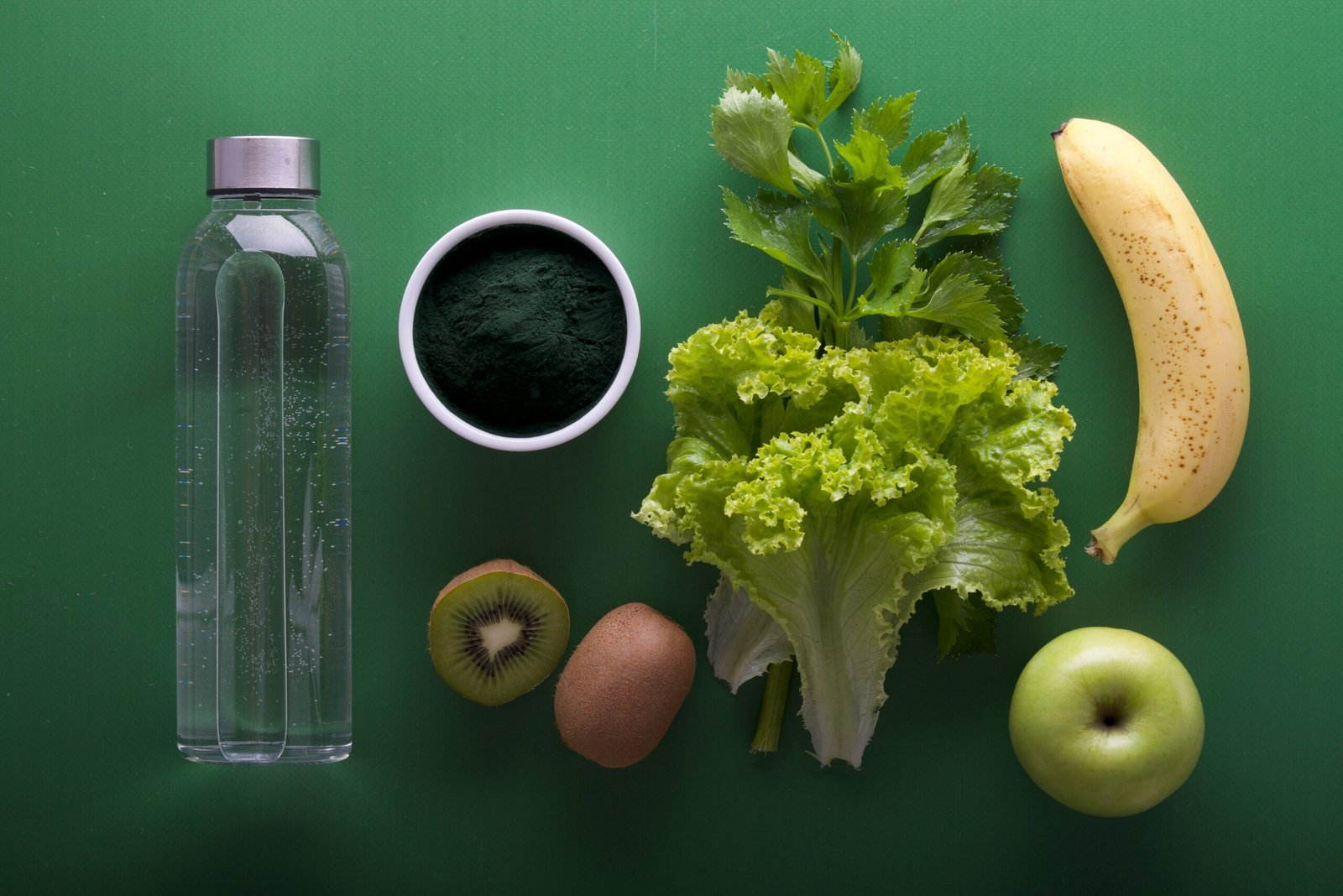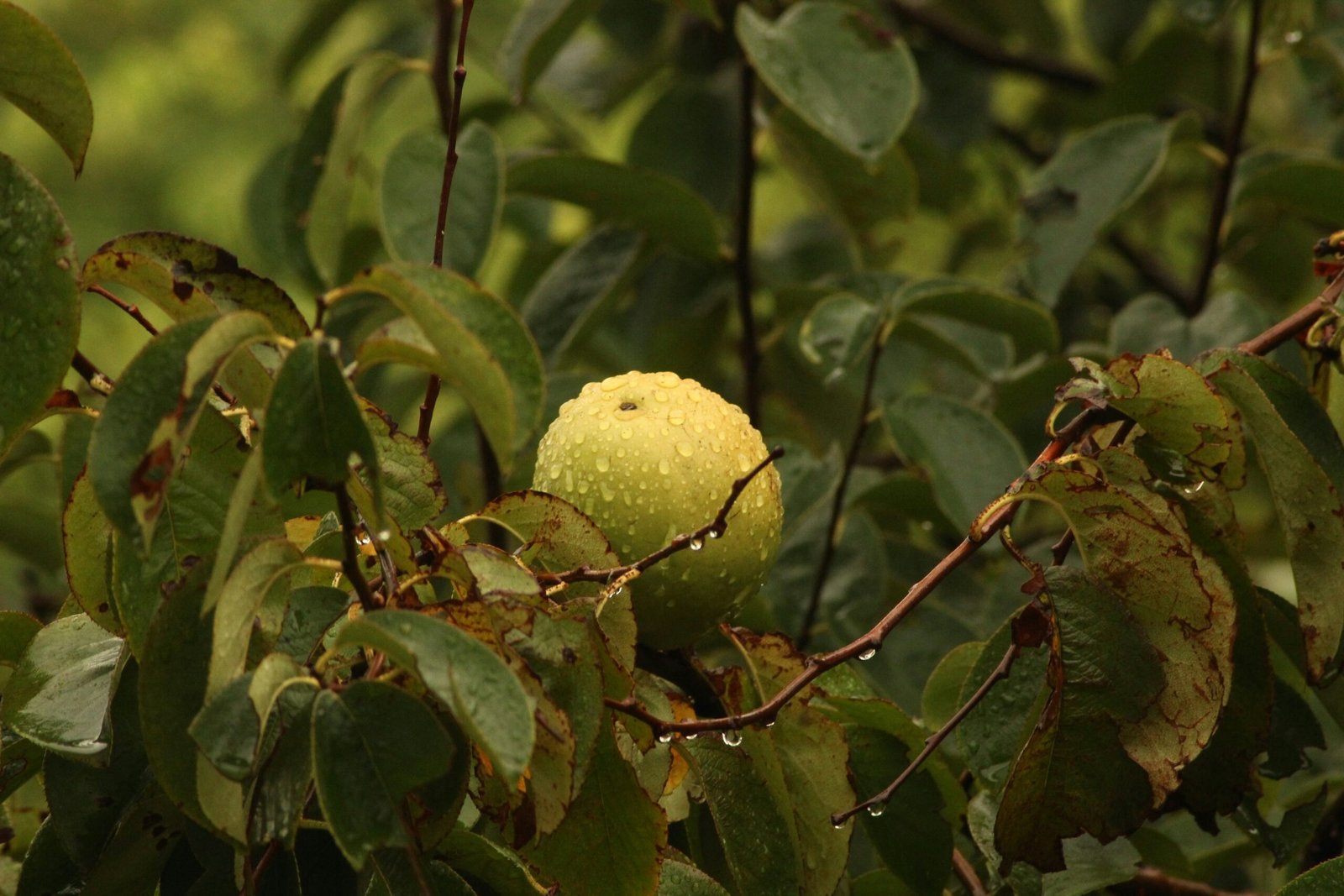https://www.profitablecpmrate.com/bwpetv09?key=69b5a96f33cdcb357a96f9f869e3d7ad
Introduction to Asthma and Natural Remedies
Asthma is a chronic respiratory condition marked by episodes of airway inflammation, bronchoconstriction, and increased mucus production. These symptoms manifest as wheezing, shortness of breath, chest tightness, and coughing, which can significantly impact daily life. Asthma affects millions worldwide, with triggers ranging from allergens, air pollution, and respiratory infections to physical activity and stress. Conventional treatment methods often include the use of inhalers, corticosteroids, and bronchodilators to manage symptoms and reduce inflammation in the airways.
Although conventional medications can be effective, they sometimes come with side effects and may not address the root causes of asthma. This has led to an increasing interest in natural remedies for asthma, particularly those involving herbs, fruits, and vegetables known for their anti-inflammatory and immune-boosting properties. Harnessing the power of natural remedies could be a complementary approach to traditional treatments, providing holistic benefits that pharmaceuticals might not offer.
Natural remedies for asthma utilize compounds found in various plants to potentially alleviate symptoms and reduce the frequency of asthma attacks. These remedies focus on leveraging the body’s innate healing processes while minimizing reliance on synthetic medications. For instance, herbs like turmeric and ginger are praised for their potent anti-inflammatory effects, which may help in reducing airway inflammation. Similarly, fruits rich in antioxidants and vitamins, such as oranges and berries, can provide immune system support and decrease oxidative stress, which is often heightened in asthmatic individuals.
Vegetables, too, play a crucial role in natural asthma management. Leafy greens, such as spinach and kale, contain vital nutrients and phytonutrients that may contribute to respiratory health. By incorporating a variety of these natural elements into one’s diet, it is possible to support asthma management holistically. Exploring these natural avenues opens up new possibilities for those seeking alternative or supplementary methods to conventional asthma treatments.
Herbal Remedies for Asthma
Asthma, a chronic respiratory condition, can often find relief through various herbal remedies. Historically and scientifically studied, herbs such as thyme, licorice root, turmeric, and butterbur hold potential for alleviating asthma symptoms. These herbal treatments capitalize on their anti-inflammatory, antispasmodic, and immune-supporting properties, demonstrating the vital role of natural solutions in managing respiratory health.
Thyme, for instance, is lauded for its high concentration of thymol, a natural antiseptic and antispasmodic. Thymol aids in relaxing the respiratory tract muscles, providing relief from asthmatic symptoms. Thyme can be consumed as a tea, inhaled as an essential oil, or used in cooking. Thymol’s efficacy is supported by studies highlighting its ability to reduce inflammation and improve airflow.
Licorice root is another potent herb beneficial for asthma sufferers. It contains glycyrrhizic acid, which has anti-inflammatory and immunomodulatory effects. Licorice root tea is a common preparation method: steep one teaspoon of the root in hot water for 10-15 minutes. Regular consumption, however, should be monitored due to potential side effects like elevated blood pressure and potassium imbalance.
Turmeric is widely recognized for its active compound, curcumin, which possesses powerful anti-inflammatory properties. Its role in reducing airway inflammation and oxidative stress is well-documented in scientific literature. Turmeric can be incorporated into the diet through foods, taken as a supplement, or used to make turmeric milk (often called golden milk), mixing a teaspoon of turmeric powder in warm milk.
Butterbur, containing petasin and isopetasin, has demonstrated efficacy in reducing the frequency and severity of asthma attacks. This herb’s anti-inflammatory and muscle relaxant properties make it suitable for asthma treatment. Typically available in capsule form, a common dosage recommendation is 50-75 mg twice daily, though consultation with a healthcare provider is advisable due to potential liver toxicity without proper extract purification.
Incorporating these herbal remedies for asthma, guided by scientific evidence, offers promising adjunctive options for managing this respiratory condition. Proper usage, preparation, and dosage are crucial for optimizing their benefits and ensuring safety.
Asthma-Fighting Fruits
A range of fruits have been identified for their potential to aid in asthma management due to their rich content of antioxidants, vitamins, and other beneficial compounds. Among the most notable are apples, avocados, bananas, and berries. Each of these fruits possesses unique properties that can contribute significantly to respiratory health and overall well-being.
Apples: Apples are rich in quercetin, a flavonoid known for its anti-inflammatory and antioxidant properties, which may help reduce the risk of asthma and other respiratory conditions. A study in the American Journal of Respiratory and Critical Care Medicine found that individuals who consumed at least two apples per week had a lower incidence of asthma. Additionally, the high vitamin C content in apples helps boost the immune system.
Avocados: Avocados are packed with glutathione, a powerful antioxidant that protects cells from damage and supports lung function. This fruit also contains vitamin E and healthy monounsaturated fats, which are beneficial for overall heart health and reducing inflammation. Incorporating avocados into salads or spreads like guacamole can be an easy and delicious way to enhance your diet.
Bananas: Bananas are an excellent source of potassium and vitamin B6, both of which play crucial roles in maintaining healthy lung function and reducing bronchial hypersensitivity. Potassium, in particular, can help regulate fluid balance and muscle function, including the muscles involved in breathing. Studies have shown that children who consume bananas regularly have a lower risk of developing asthma symptoms.
Berries: Berries, such as blueberries, strawberries, and raspberries, are loaded with antioxidants and vitamins like vitamin C, which can help reduce inflammation and improve lung health. The antioxidants in berries combat oxidative stress and may enhance immune function. Incorporating berries into smoothies, yogurts, or simply eating them fresh can be a great way to take advantage of their health benefits.
By incorporating these asthma-fighting fruits into your daily diet, you can bolster your respiratory health and overall well-being. Whether eaten whole, blended into a smoothie, or added to various dishes, these fruits can be both a tasty and beneficial addition to your meals.
Vegetable Remedies to Reduce Asthma Symptoms
Consumption of certain vegetables can play a significant role in managing asthma symptoms due to their high content of vitamins, minerals, and anti-inflammatory properties. For individuals grappling with asthma, vegetables like spinach, carrots, sweet potatoes, and broccoli can be particularly beneficial in enhancing lung function and supporting overall respiratory health.
Spinach is rich in magnesium which can help relax the muscles around the bronchial tubes, potentially easing breathing difficulties. Additionally, its high levels of antioxidants may reduce inflammation and oxidative stress, both of which can exacerbate asthma symptoms. Incorporating spinach into your diet is simple, whether through fresh salads, sautéed dishes, or green smoothies.
Carrots, abundant in beta-carotene, are not only good for vision but also contribute to lung health. Beta-carotene is a precursor to vitamin A, which is essential for maintaining the mucous membranes lining the respiratory tract. Roasting carrots with a drizzle of olive oil and herbs or adding them to soups and stews can make for a tasty and healthful addition to meals.
Sweet potatoes offer a powerhouse of nutrients, including vitamin C, potassium, and fiber, all important for reducing inflammation and supporting immune function. Their natural sweetness makes them versatile for both savory and sweet dishes. Baking sweet potatoes or mashing them with herbs can provide a nutrient-rich accompaniment to any meal.
Broccoli is another excellent vegetable for those with asthma, due to its high levels of vitamin C and sulforaphane. These compounds may help protect against respiratory infections and promote detoxification processes in the lungs. Steaming broccoli to retain its nutrients or incorporating it into stir-fries and pasta dishes can be an effective way to enjoy this vegetable regularly.
Embracing these vegetables in your daily diet can contribute significantly to managing asthma better. Not only do they support lung function and reduce inflammation, but they also enhance overall health and well-being, making them a smart addition to meal plans for anyone suffering from asthma.
Combining Herbs, Fruits, and Vegetables for Maximum Benefit
Effectively integrating herbs, fruits, and vegetables into your diet can provide significant advantages for those seeking natural remedies for asthma. One powerful recipe to consider is a herbal smoothie that leverages the synergistic properties of ginger, turmeric, spinach, banana, and apple. Ginger and turmeric boast anti-inflammatory and antioxidant properties, while spinach, rich in magnesium and potassium, supports lung function. Bananas and apples are excellent sources of vitamins and fiber to promote overall health. Blend one ripe banana, one apple (cored and peeled), a handful of spinach, half a teaspoon of grated ginger, and a pinch of turmeric. Add a cup of water or almond milk and blend until smooth. Consume this smoothie daily to reap its optimal benefits.
An equally effective herbal tea, combining peppermint, licorice root, and thyme, serves as another remedy to alleviate asthma symptoms. Peppermint opens airways, licorice root reduces inflammation, and thyme acts as an expectorant. To prepare this tea, steep one teaspoon each of dried peppermint leaves, licorice root powder, and thyme in boiling water for 10 minutes. Strain the mixture and drink it warm, preferably twice a day, to support respiratory wellness.
In addition to beverages, consider incorporating a vegetable stir-fry that maximizes the inclusion of beneficial herbs and vegetables. A medley of broccoli, bell peppers, carrots, garlic, and oregano offers a nutritious meal that supports lung function. Broccoli and bell peppers are rich in vitamin C, while carrots provide beta-carotene, an effective antioxidant. Garlic and oregano possess anti-inflammatory and antimicrobial properties. Lightly sauté all ingredients in olive oil until tender. This stir-fry can be consumed regularly as part of your main meal to help reduce the frequency of asthma attacks.
Ultimately, incorporating a diversity of herbs, fruits, and vegetables into your daily diet allows for a broad spectrum of nutrients and medicinal compounds that can interact synergistically. Adopting routines that consistently include these natural ingredients will not only improve your asthma symptoms but also contribute to overall wellness.
Scientific Evidence and Case Studies
Over the years, the effectiveness of herbal remedies to cure asthma has been a focal point of numerous scientific studies and clinical trials. Various research initiatives have explored the therapeutic potential of natural treatments, aiming to provide clearer insights into their efficacy and safety.
One pivotal study conducted by the Department of Respiratory Medicine at a renowned medical institution examined the impact of Boswellia serrata, a herb traditionally used in Ayurvedic medicine. The clinical trial revealed significant improvements in lung function and a reduction in airway inflammation among asthma patients who regularly consumed Boswellia extracts.
Similarly, a double-blind, placebo-controlled trial published in the Journal of Ethnopharmacology assessed the benefits of Curcuma longa (Turmeric). The study involved 120 participants with chronic asthma, where half received a standardized Turmeric supplement. Results indicated a marked decrease in asthma symptoms alongside improved pulmonary metrics among the Turmeric group.
Beyond clinical trials, anecdotal evidence and case studies further underscore the potential of fruits and vegetables in managing asthma. For instance, incorporating apples, rich in flavonoids and antioxidants, has been repeatedly associated with lower asthma-related incidents. A case study highlighted a significant reduction in inhaler reliance after consistent dietary intake of apples and other flavonoid-rich produce.
Moreover, Omega-3 fatty acids prominent in walnuts and flaxseeds, as discussed in a clinical study published in the American Journal of Respiratory and Critical Care Medicine, demonstrated an ability to modulate inflammation and improve respiratory function. Patients reported fewer exacerbations and an overall enhancement in their quality of life.
The implications of these findings are profound for individuals seeking to manage asthma through natural means. While more extensive, longitudinal studies are necessary to solidify these claims, the existing body of research provides promising evidence supporting the integration of herbal, fruit, and vegetable remedies into asthma management plans.
Potential Risks and Considerations
While exploring herbal remedies to cure asthma can be a promising complement to conventional treatments, it is essential to understand the potential risks and considerations involved. Natural remedies, despite their perceived safety, are not devoid of side effects and can interact with standard asthma medications. For instance, licorice root, a common herbal remedy, can cause high blood pressure and interact with corticosteroids, often prescribed for asthma management.
One predominant risk is the potential for allergic reactions. Herbs like echinacea, butterbur, and peppermint can induce allergies in sensitive individuals, exacerbating asthma symptoms rather than alleviating them. Additionally, some herbal supplements may contain various pollutants or heavy metals due to inadequate regulatory oversight, leading to further health complications.
It is crucial to consult healthcare professionals before incorporating herbal remedies into your asthma management plan. Physicians can help assess potential interactions with your existing medications and monitor your health for adverse reactions. Failure to do so might result in incomplete treatment or unforeseen side effects, undermining your overall health.
Moreover, certain natural remedies may have known contraindications. For example, ginkgo biloba can increase the risk of bleeding, particularly if taken with anticoagulants or nonsteroidal anti-inflammatory drugs. Garlic, another popular remedy, can also amplify the effects of blood-thinning medications, posing significant health risks.
Preventative measures to ensure the safe use of natural remedies include starting with a low dose to observe any adverse reactions, sourcing supplements from reputable manufacturers, and maintaining an open dialogue with your healthcare provider. By adopting these precautions, you can better navigate the integration of herbal remedies within your asthma treatment framework, leveraging their benefits while mitigating potential risks.
Conclusion: Embracing a Natural Approach to Asthma Management
In reviewing the potential benefits of integrating herbal, fruit, and vegetable remedies into asthma management, it becomes evident that nature offers a multitude of options that can complement traditional treatments. Throughout this discussion, we have explored how numerous herbs, like ginger and turmeric, possess anti-inflammatory properties that can aid in reducing asthma symptoms. Similarly, fruits and vegetables rich in vitamins and antioxidants, such as apples and spinach, contribute to lung health, potentially alleviating the severity of asthma attacks.
By incorporating these natural elements into your daily regimen, you may discover a holistic approach to asthma care that enhances overall well-being. However, it remains crucial to approach this integration thoughtfully and collaboratively with your healthcare provider. Open communication with medical professionals ensures that these naturopathic additions align with your existing treatment plans and do not interfere with prescribed medications.
As we continue to recognize the value of both conventional and natural treatments, the emphasis on balance becomes essential. A natural approach, grounded in evidence and supported by healthcare guidance, not only leverages the body’s inherent healing capabilities but also fosters a more sustainable and enjoyable lifestyle. The journey towards improved asthma management is certainly multifaceted, and combining the strengths of modern medicine with the age-old wisdom of herbal remedies can create a more resilient and robust strategy for tackling asthma.
Looking ahead with optimism, it is encouraging to consider how this blended approach can contribute significantly to better asthma control and enhanced quality of life. Embracing natural remedies offers an empowering perspective, reinforcing that integrating small, thoughtful changes into our daily routines can lead to meaningful, long-term health benefits.
Here is a bonus for you because you read the article to the end. Click on the link below and be the first person to discover many exciting online business opportunities> https://www.profitablecpmrate.com/nq7my1t66a?key=bb2d4ae95c421da5ae34a73884b95965




